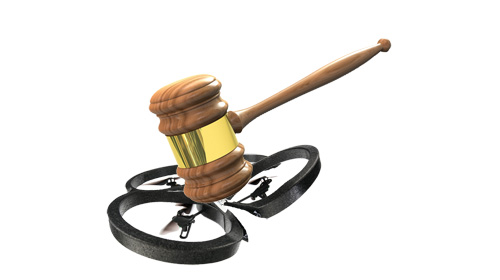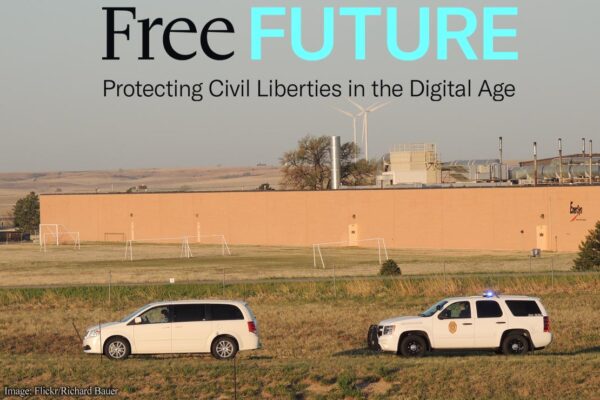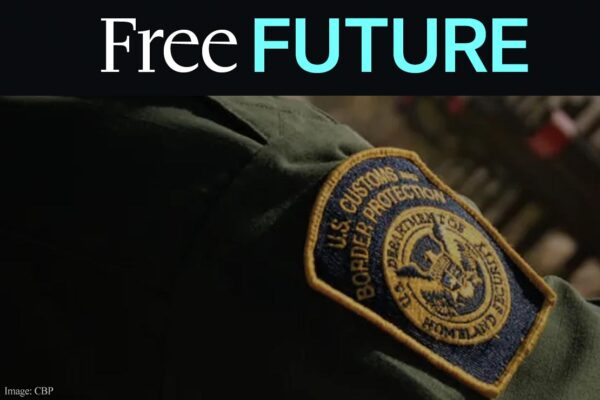
Yesterday the drone regulation bill in the Washington state legislature died, having failed to meet the cutoff date for moving to the House floor. Although our lobbyist there thought the bill would have passed both houses had the Democratic leadership allowed it to get there, they did not. Boeing lobbied against the bill, as did law enforcement.
One of the arguments presented by opponents, our Washington state lobbyist Shankar Narayan reports, was the claim that no regulations are needed for drones because we ought to let the courts work out the privacy issues surrounding drones and deal with any abuses that arise. I have also heard spokespeople for the drone industry association, the AUVSI, making this argument lately. It seems to be emerging as a primary argument of drone-legislation opponents.
This is a weak argument. Let me briefly give five reasons why:
- There is no reason to wait for abuses to happen when they are easily foreseeable. When you put an enormously powerful surveillance technology in the hands of the police and do not place any restrictions on its use, it will be abused, sooner or later, in ways illegal (i.e. by bad apples) and legal (i.e. through officially approved policies that nonetheless violate our Constitution and/or values). Why wait, when we can prevent them before they take place and spare their victims the grief?
- The legal system has always been very slow to adapt to new technology. For example, it took the Supreme Court 40 years to apply the Fourth Amendment to telephone calls. At first the court found in a 1928 decision that because telephone surveillance did not require entering the home, the conversations that travel over telephone wires are not protected. It was not until 1967 that this literal-minded hairsplitting about “constitutionally protected areas” was overturned (with the court declaring that the Constitution “protects people, not places”). Today, technology is moving far faster than it did in the telephone era—but the gears of justice turn just as slowly as they ever have (and maybe slower).
- There are many uncertainties about how our Constitution will be applied by the courts to aerial surveillance. Just as the new technology of the telephone broke the Supreme Court’s older categories of understanding, so too will drones with all their new capabilities bring up new situations that will not fit neatly within existing jurisprudential categories of analysis. For example, how will the courts view the use of drones for routine location tracking? The Supreme Court started to grapple with such questions in its recent decision in the Jones GPS case, but it is far from clear what the ultimate resolution will be. The Supreme Court has ruled before that the Fourth Amendment provides no protection from aerial surveillance, even in one’s backyard surrounded by a high fence, and while the new factors that drones bring to the equation could shift that judgment, we cannot be certain. Legislators should not sit around waiting for cases to come before the courts; they should act to preserve our values now.
- Legislatures often set rules even when the Constitution would seem to cover something. To take just one example: after the Supreme Court issued that 1967 ruling that a warrant was needed to tap someone’s phone, Congress went on to enact detailed standards the government had to follow before it could do so. What it did not do was throw its hands up and say “the court has ruled, if there are any further abuses we can let the courts take care of them.”
- Our courts often defer to the judgments of elected bodies. While the courts’ role is to step in and protect fundamental rights when they are threatened by the majority, they normally show great deference toward the judgments of elected representatives of the people. And for good reason—we live in a democracy, and unless fundamental rights are at stake decisions should be made by our democratic representatives. A legislature acting to protect fundamental rights such as privacy does not threaten such rights, and there is no reason why elected representatives shouldn’t act to protect our fundamental values if they feel that the citizens in their districts want them to.
Let’s hope that state legislators in other states don’t fall for this line of argument.



